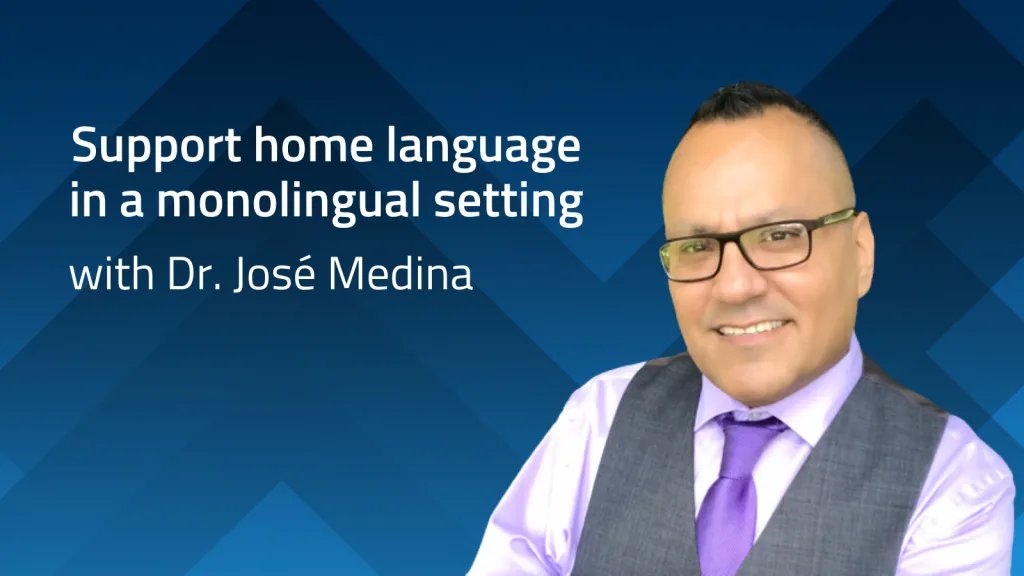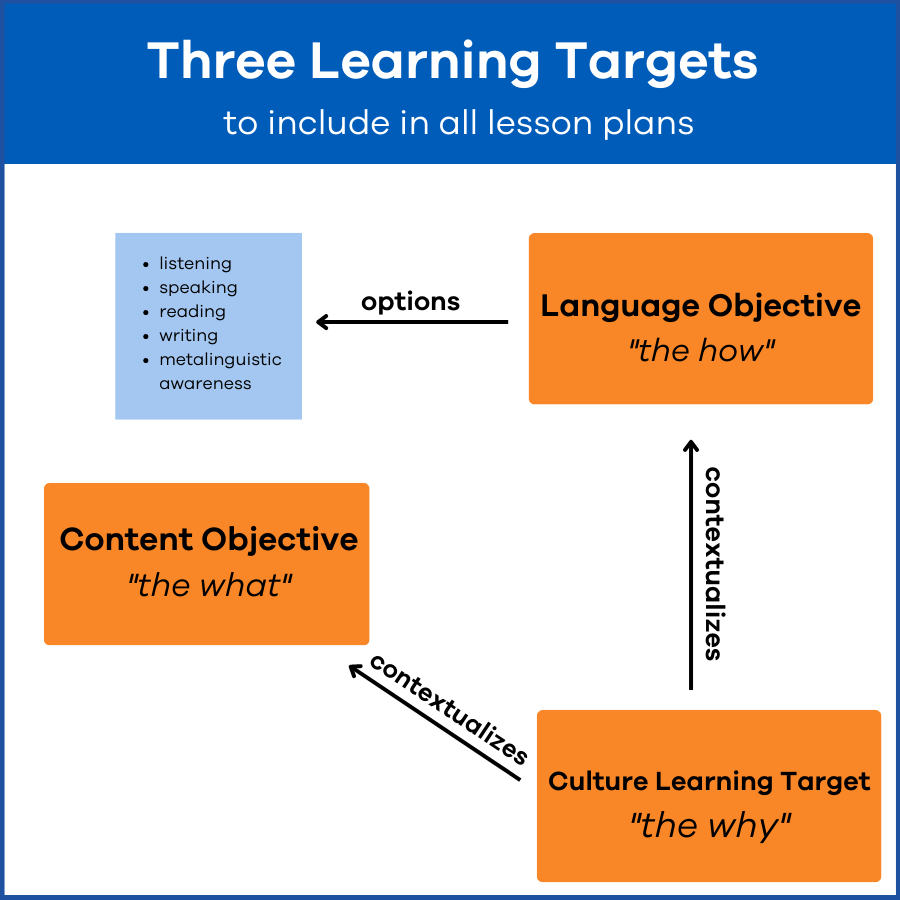Support home language in a monolingual setting


Support home language in a monolingual setting
Our education system has been built to promote monolingual learning in English, putting multilingual students’ home language on a lower or even nonexistent level. This is why Dr. José Medina agues that educators must make deliberate efforts to support ELs to combat a system that was conceptualized for oppression.
We recently spoke with Dr. Medina about causing “desmadre” (good trouble) in historically oppressive or monolinguistic centric classrooms. He shares how educators can make their classrooms a place where multilingual learners are involved in and empowered by their education, and where even English-only educators can facilitate this shift in power.
Listen to our full conversation wherever you get your podcasts, and find some of the main points from the episode below.
How to support home language in any classroom or learning environment:
Lesson plan for all three learning targets
Dr. Medina explains that explicitly planning for content, language and culture objectives in each lesson is one of the most powerful ways educators can combat historically oppressive systems. While the content objective (the what) is standard for most educators, the language objective (the how) students will access the content objective via one or more of the five language domains (listening, reading, writing, speaking, metalinguistic awareness). Finally the culture learning target is the why and contextualizes the how and what.
Students should be aware of and able to name each of these objectives in any given lesson in order for this design to truly promote equity and co-constructing/co-facilitating learning alongside the students we serve.
“If kids don't own the content, the language, and the culture that is taking place, the learning that is taking place, then we in fact become the oppressors.” - Dr. Medina

Create anti-bias critical consciousness through culture learning
The culture learning target is the critical component of the lesson plan where the educator has the opportunity to orient the student to what and how they are learning in a way that elevates their unique cultural background and experiences.
“This is critical consciousness. When lesson planning uses this lens, educators do not seek to be the voice for students. They instead seek to dismantle the systems that mute student voices," - Dr. Medina.
Four ways to plan for a culture learning target:
- Amplify voices of marginalized communities
- Connect to world beyond classroom walls
- Strengthen metalinguistic awareness and cross linguistic connections
- Appreciate a variety of language expression (academic language, social language, home language, even slang)
Embrace translanguaging research
“There are folks around the country and internationally that are implementing and causing this good trouble in monolingual settings where teachers are allowing their diverse students to make cross linguistic connections into the language of their heart,” says Dr. Medina.
Metalingual awareness - or the ability for students to make connections between languages - is the “plus one” in the five components of a language learning target. Even in an English-only school setting, educators can still empower students to own their entire linguistic repertoire through building this into instruction.
Dr. Medina shares this can be done through regularly calling out or explicitly teaching about translanguaging, which focuses on communication itself rather than language by allowing students to switch between or utilize multiple languages in order to most effectively send and receive information. Educators who may only speak English can be vulnerable alongside their students by pushing outside their comfort zone to promote a more linguistically and culturally diverse classroom.
To learn more about translanguaging and cross-linguistic connections check out our previous conversation with Dr. Medina.
For the full episode transcript click here.
Episode resources:
- Article by Dr. Medina in Language Magazine
- Read Pedagogy of the Oppressed
- Learn more about his work at www.drjosemedina.com
- JoseMedina1000 on Instagram and TikTok
- @JoseMedinaJr89 on Twitter
- Check out our previous conversation on the C6 Biliteracy Framework
- Learn more strategies for honoring students' home language in our White Paper